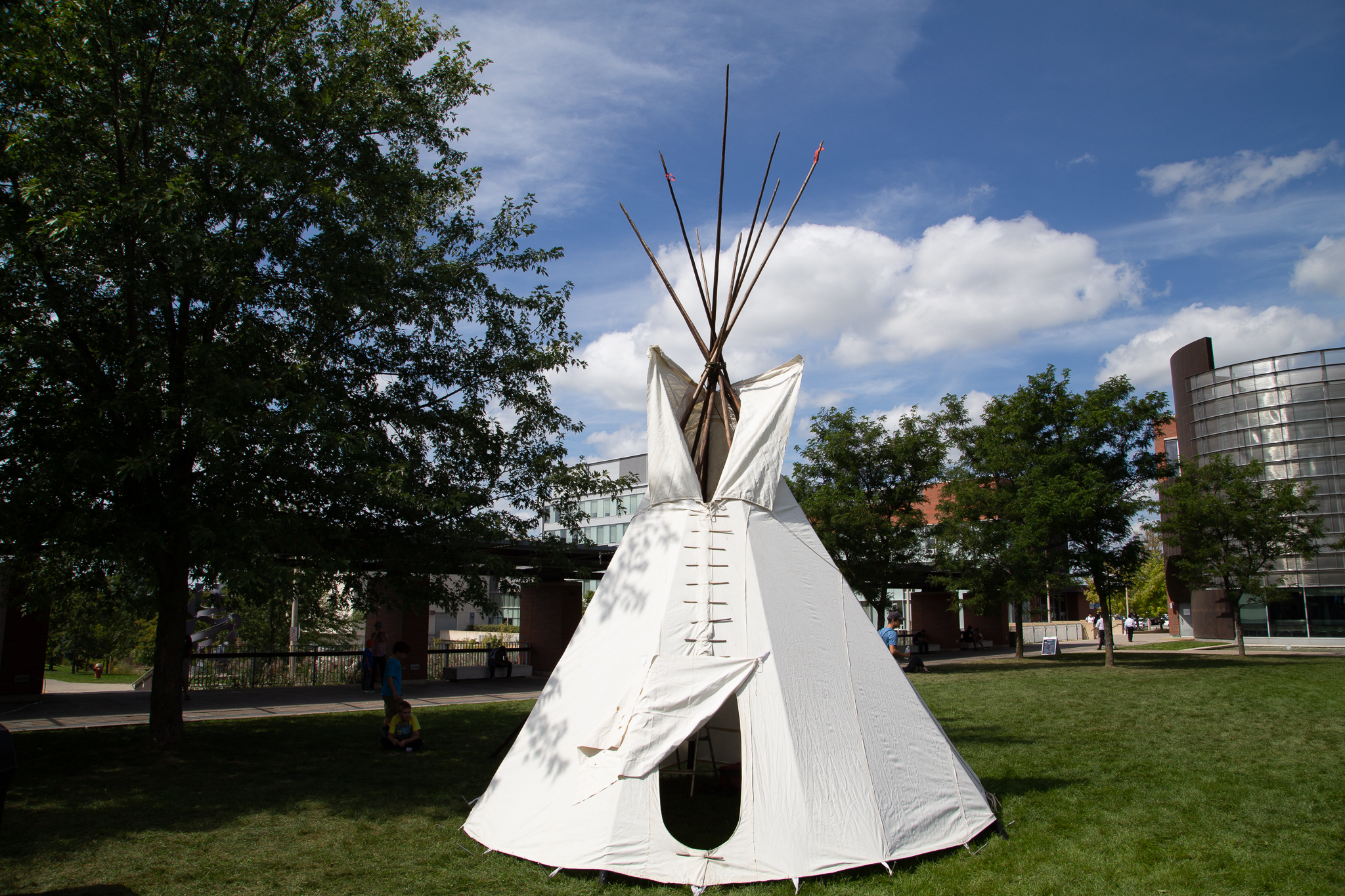Land Acknowledgment
 Rationale
Rationale
As the journey towards reconciliation at the university continues, and we strive to fulfill the Truth and Reconciliation Commission’s calls to action, it is important that we continue to build relationships and engage in ongoing education.
Reconciliation and allyship is a continuous process and one that we all need to engage in fully. With this in mind, we must take every appropriate opportunity to acknowledge the traditional territory on which the university resides. Acknowledging the traditional territory expresses respect, gratitude and appreciation for the Indigenous peoples who have inhabited and continue to live on the land. It is recognition of their presence both in the past and the present. Recognition helps to create a welcome and safe environment for Indigenous students, their families and community members.
Best practices
-
There is a difference between a welcoming and a land acknowledgment. A welcoming is a gesture made to welcome people to the territory. The welcoming should be done by a person from that territory. A land acknowledgment is a recognition of the territory and the traditional people of the lands. It is the responsibility of the host of the event to do the land acknowledgment. The more respectful approach would be a non-Indigenous person; however, Indigenous people also do land acknowledgments.
-
The acknowledgment or welcome should be the first item on the agenda and should be done before introducing any speakers.
When should you acknowledge the traditional territory?
A land acknowledgment should be done at the beginning of any gathering to begin in a good way. Examples of such gatherings are meetings, webinars, convocation, training sessions, sporting events and special events. Contact indigenous@ontariotechu.ca if you have any questions on when it is appropriate to include a land acknowledgment.
One way the university can acknowledge its commitment to building stronger relationships with Indigenous communities is to include the land acknowledgment on all internal and external communications, including videos. It is encouraged that a land acknowledgment be included in your email signature, as well as job postings.
We may all be working or studying from different territories. We encourage you to take time to reflect on the traditional territory you are on, what treaty is it covered under and your own personal relationship to the land.
Land Acknowledgment statement
Ontario Tech University acknowledges the lands and people of the Mississaugas of Scugog Island First Nation. We are thankful to be welcomed on these lands in friendship. The lands we are situated on are covered under the Williams Treaties and the traditional territory of the Mississaugas, a branch of the greater Anishinaabeg Nation, including Algonquin, Ojibway, Odawa and Pottawatomi. These lands remain home to a number of Indigenous nations and people.
We acknowledge this land out of respect for the Indigenous nations who have cared for Turtle Island, also called North America, from before the arrival of settler peoples until this day. Most importantly, we remember the history of these lands has been tainted by poor treatment and a lack of friendship with the First Nations who call them home.
This history is something we are all affected by as we are all treaty people in Canada. We all have a shared history to reflect on, and each of us is affected by this history in different ways. Our past defines our present, but if we move forward as friends and allies, then it does not have to define our future.
It is important to note that the acknowledgment statement was created in consultation with the Indigenous Education Advisory Circle at Ontario Tech and the Mississaugas of Scugog Island First Nation. We would also like to thank Christopher Grol for his contribution to the development of this statement.
The statement should be fluid and natural when delivered. Pronunciation is important. If you would like support, please contact indigenous@ontariotechu.ca. Listen to the sample pronunciation file before reading the statement to hear how the words should sound.
Here is a written phonetic guide to pronouncing the names of the different Nations in the statement:
- Algonquin – Al-gon-kwin
- Anishinaabeg – Awe-ni-shin-awe-beg
- Odawa – Owe-dow-ah
- Ojibwe – Owe-jib-way
- Potawatomi – Pot-a-wot-uh-mee
Educating the community
To ensure this acknowledgment does not become a checklist item, we need to commit to action, education, meaningful dialogue and change. Along with the acknowledgment, we must engage our communities in education about Indigenous history, treaties and the rich culture and traditions of Indigenous peoples. Remembering always, “nothing about us without us”.
Additional Resources:
Mississaugas of Scugog Island First Nation
DOWNLOAD THE LAND ACKNOWLEDGMENT AND INFORMATION GUIDE
With permission, this file has been adapted from the Proud to Be: Acknowledge Traditional Territory document created by the Durham District School Board.
Why are land acknowledgments important?
Watch this video as Kim Wheatley explains why it is important for all of us to care and learn about land acknowledgments.